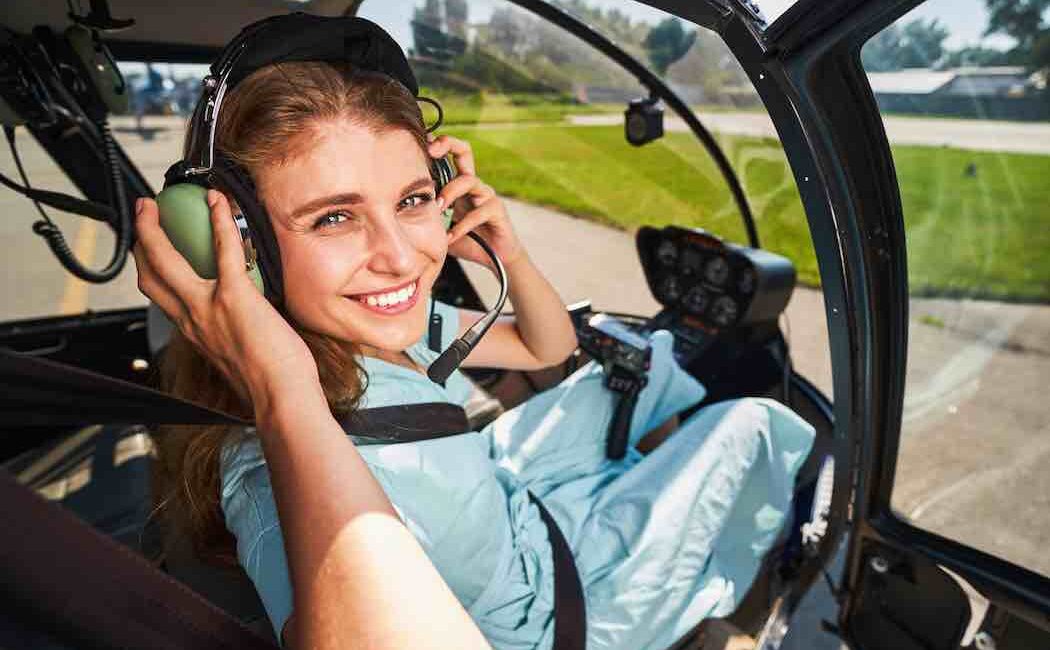At some point, just about every little kid wants to be a pilot or take to the friendly skies. After all, what’s cooler than being able to touch the clouds when you’re ten years old? Of course, by the time you’re ready to head to college and consider a career path, you’ve probably realized that there’s more to being a pilot than zooming through the skies – and there’s more to aeronautics than just flying a plane.
But, if that little fire inside that’s always been excited about air travel has never completely gone away, it might be time to consider an aeronautics degree – especially if you’re struggling to settle on a major.
There’s much more to aeronautics than you might expect, and so much left to learn and discover about the world of flight. Let’s take a closer look at what aeronautics is, what you can expect from a degree, and different career paths you can choose from once you decide to follow through on this major.
Choosing a Degree
College is a fun and exciting stage of life. It’s a time to figure out who you are and who you want to be while fostering relationships and learning more about the world. Of course, there’s also a lot of stress that can come along with the college experience. Many college students struggle with at least one mental health challenge, and common strains like fitting in, missing home, and worrying about the future can trigger things like anxiety and depression. When you have an undecided major, that stress can become even greater, and you might feel extremely anxious about what to do in the future and possibly even your own identity.
However, researching degrees to satisfy your deepest dreams, such as becoming a pilot, can help relieve your stress.
A Degree in Aeronautics
At its core, aeronautics is the study of the science of flight that includes everything from airplanes to space travel.
Depending on the specific aeronautics career of your choosing, you’ll likely need advanced education classes in things like biology, algebra, chemistry, or even computer programming. To be an Engineer or Scientist in the aeronautics field, you’ll need at least a bachelor’s degree.
Career Options in Aeronautics
Take a look up at the sky and consider the wonders that await, whether you want to actually be among the clouds, yourself, or help to advance what we already know about things like space and air travel.
No matter what you’re interested in or where your skills are, there are plenty of career opportunities within aeronautics to consider.
1. Pilot
The first thing that likely comes to mind when you think about a degree in the science of flight is flying a plane. Pilots have always been revered. It’s an honor and privilege to fly a plane, whether it’s done commercially or privately. Some of the biggest benefits of being a pilot include:
- Travel for work;
- High salaries and benefits packages;
- A faster growth than other professions (more job opportunities);
- Free flights;
- Plenty of autonomy.
Of course, being a pilot isn’t all glamorous. You have to consider the stress. Pilots often work long, unpredictable hours and have to spend a lot of time away from family and friends. If you fly commercially, you’ll constantly have the lives of others in your hands, and that’s never a responsibility to take lightly.
Plus, training can be time-consuming, stressful, and expensive. You’ll need to attend flight school and complete a set number of hours in the air before getting a license. In college, you’ll focus on classes centered on math and physics.
2. Aerospace Engineer
If you don’t necessarily want to be up in the air but you want to study it, consider becoming an aerospace engineer with your aeronautics degree. You can become an engineer with an undergraduate degree, and you would be responsible for most of the behind-the-scenes work in aircraft development and safety.
Aerospace engineers help to design and test things like airplanes, spacecraft, satellites, and even missiles. Because engineers are constantly pushing the boundaries of how far science can take air travel, you could end up being at the forefront of the future of aeronautics — including advancing the study of supersonic travel. The iconic Concorde space vessel is still one of the most prominent and popular when it comes to getting a close view of a solar eclipse. Supersonic travel could change that. So, if you’re a space junkie or have always been fascinated by eclipses, you could be part of the team that can engineer a spacecraft that travels at the same speed as the next solar eclipse.
3. Mechanical Engineer
Have you always had a knack for physics and mathematics? If so, you can use an aeronautics degree to become a mechanical engineer.
Mechanical engineers have the responsibility of creating the systems and equipment used on different types of aircraft. They need to have strong computer and design skills, and constantly need to be up-to-date on the latest technology necessary to improve air travel.
Aerospace mechanical engineers do more than just manufacture different types of aircraft. They make sure all components of each aircraft are designed for efficiency and safety. Mechanical engineers are responsible for the innermost workings of air travel, so being able to pay attention to extreme detail is essential.
4. Aircraft Mechanic/Service Technician
Maybe you’ve always preferred working with your hands but you still want to be involved in aeronautics. Consider becoming an aircraft mechanic or service technician. They’re responsible for:
- Diagnosing mechanical issues;
- Diagnosing electrical issues;
- Repairing electrical systems;
- Cosmetic repairs;
- Replacing defective parts.
As an aircraft mechanic, it’s necessary to be comfortable around a variety of power tools, but it’s not just about fixing things until they look good. Aircraft mechanics and technicians have to be well-versed in aviation regulations and make sure all repairs are compliant with federal standards.
Wrapping Up
There’s always going to be something fascinating about air travel — whether it’s commercial flying or zooming into space. If that sense of wonder and fascination has always been with you and you’re still undecided on a major, an aeronautics degree could be in your future.
Consider some of the careers here, as well as your skills and interests, and don’t be afraid to do your research on even more career opportunities within the field. The sky (and beyond) is the limit!



